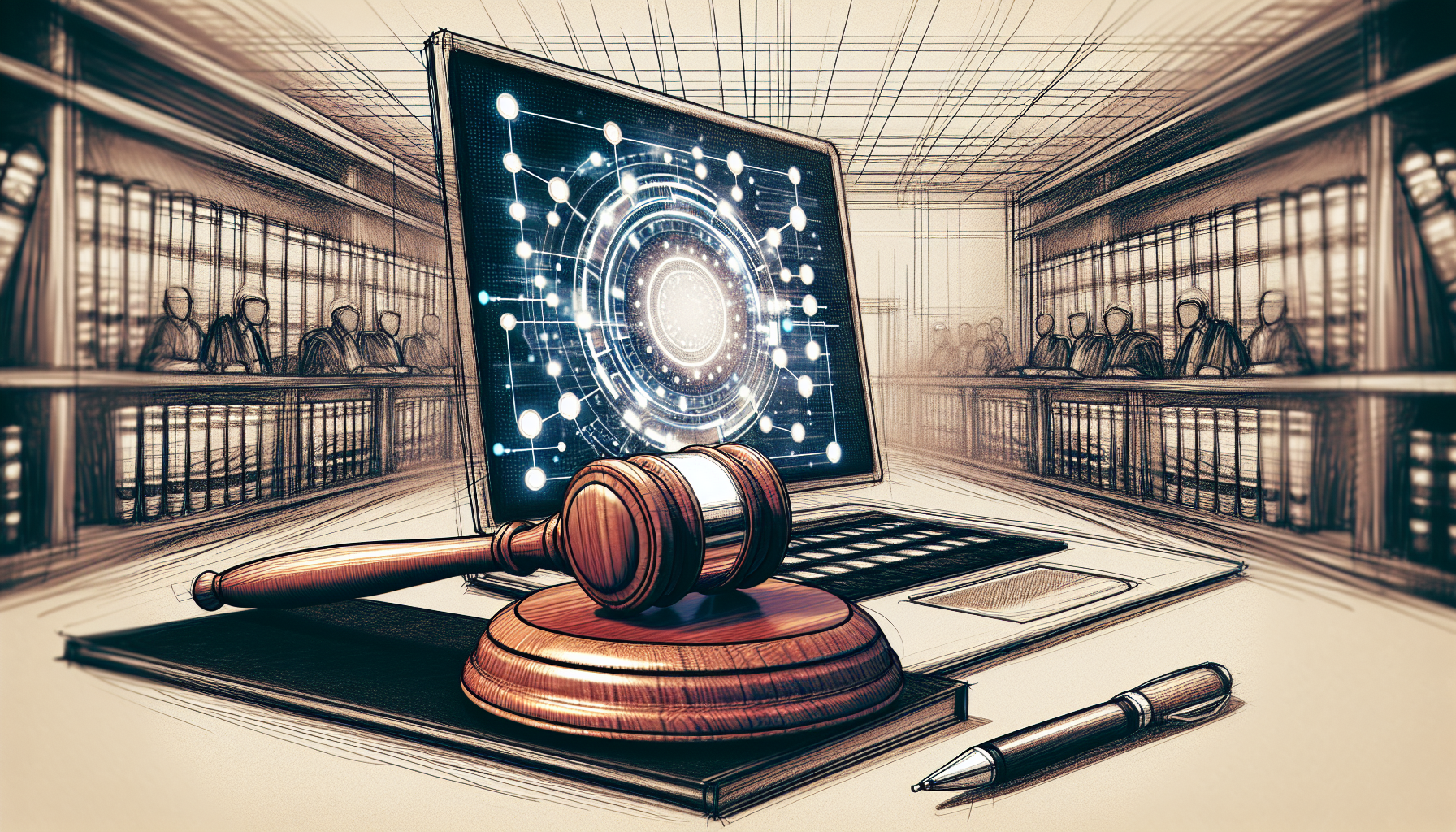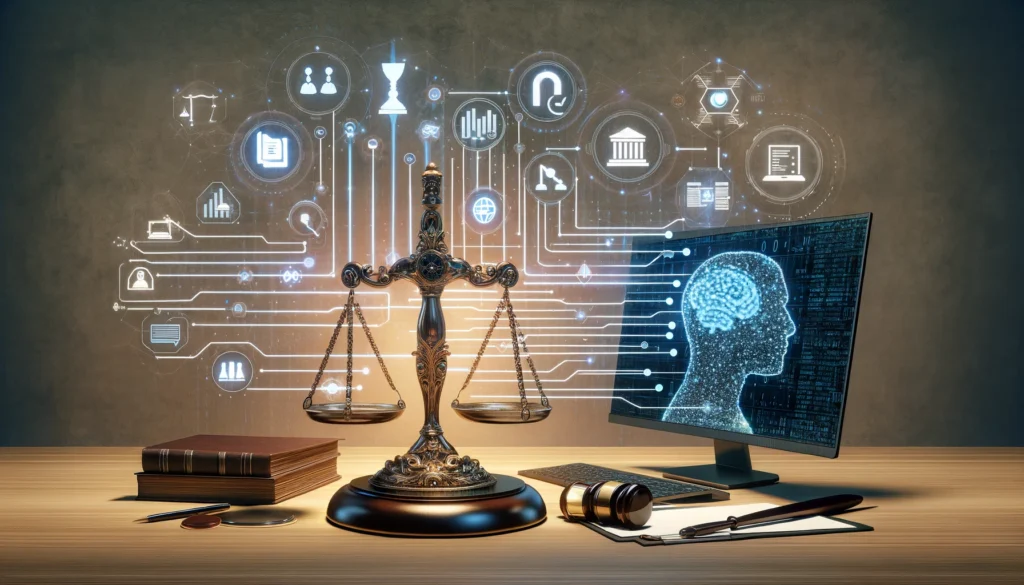
Revolutionizing Paralegal Work: An Overview of ChatGPT for Corporate Loan Agreements
The legal industry is witnessing an unprecedented transformation with the advent of advanced technologies like ChatGPT. By streamlining tasks traditionally handled by paralegals, ChatGPT enhances efficiency and accuracy, notably in the preparation of corporate loan agreements. These agreements are crucial documents that necessitate meticulous drafting and verification to ensure they meet legal and client-specific requirements. Harnessing ChatGPT can lead to significant improvements in both the speed and quality of this process.
Through refined algorithms and vast language processing capabilities, ChatGPT can assist in drafting, researching, and reviewing essential legal documents. This potential impact on preparing corporate loan agreements promises not only to boost productivity but also to augment the precision and consistency expected in legal practices.
Laying the Foundation: Setting Up ChatGPT for Optimal Use
Before leveraging ChatGPT’s capabilities, it’s essential to establish a robust setup. Choosing the right platform and version of ChatGPT is the first step. OpenAI offers different versions tailored to various needs, and selecting the most appropriate one depends on specific paralegal requirements.
Integration with existing tools and workflows is paramount. For instance, connecting ChatGPT with document management systems (DMS) or legal research databases can optimize data retrieval and streamline document preparation. The initial setup might involve API integrations, user training, and configuring settings aligned with organizational protocols.
Critical to the setup is ensuring compliance and confidentiality. Legal information is sensitive, and maintaining its integrity is non-negotiable. Implementing secure data handling practices, encrypting communications, and adhering to regulatory standards like GDPR or CCPA are necessary steps to safeguard information.
Mastering the Art of Prompts: Crafting Effective Questions and Instructions
Effective utilization of ChatGPT hinges on mastering prompt crafting—a nuanced skill crucial for eliciting accurate outputs. The specificity in prompts can significantly influence the quality of responses generated by ChatGPT.
Importance of Specific Prompts: General or vague prompts often yield broad answers that may lack relevance or precision. Conversely, well-defined instructions can produce detailed, contextually appropriate responses. For example, compare these two prompts:
- Ineffective: “Draft a clause for a loan agreement.”
- Effective: “Draft a boilerplate clause outlining the borrower’s obligations to provide quarterly financial reports to the lender in a secured corporate loan agreement.”
Here, the second prompt offers specific context, leading to a more pertinent output. Refining prompts involves iterative processes where feedback on generated outputs helps in honing the questions further.
Examples to Consider:
- Ineffective: “What are the terms of the loan?”
- Effective: “List the interest rate, repayment schedule, collateral requirements, and default conditions for a corporate loan agreement with a fixed term of 5 years and a principal amount of $500,000.”
Implementing these techniques ensures that the outputs are aligned with the precise needs of the agreements, reducing subsequent editing efforts.
Streamlining Document Drafting: Using ChatGPT to Generate Loan Agreement Clauses
Common clauses in corporate loan agreements are fundamental to their structure and enforceability. By utilizing ChatGPT, paralegals can expedite the drafting of these critical sections.
Common Clauses and Significance: Clauses such as “Repayment Terms,” “Interest Rates,” “Covenants,” “Events of Default,” and “Governing Law” are integral. These sections delineate the core terms and obligations, ensuring clarity and enforceability. Understanding their importance is crucial as they represent the backbone of the agreement.
Sample Prompts for Generating Clauses:
- For Repayment Terms: “Generate a clause detailing the monthly repayment schedule for a $1,000,000 loan with a 3-year term and 5% annual interest rate, including contingencies for early repayment.”
- For Interest Rates: “Create a clause specifying a fixed interest rate of 4.5% per annum for the loan, including conditions for interest rate adjustments based on market changes.”
- For Covenants: “Draft a covenant clause requiring the borrower to maintain a debt-to-equity ratio of no higher than 2:1 throughout the loan term.”
- For Events of Default: “Outline a clause detailing the events constituting default, including non-payment, insolvency, and breaches of financial covenants.”
- For Governing Law: “Write a clause stating that the loan agreement will be governed by the laws of the State of New York.”
These prompts help in generating tailored clauses that align with the specific legal and regulatory framework of each contract.
Fine-Tuning Outputs: While ChatGPT can provide comprehensive drafts, customizing these clauses to match client-specific requirements is crucial. This involves aligning the language and terms to the client’s industry, compliance needs, and specific contractual terms.
Enhancing Due Diligence: Leveraging ChatGPT for Legal Research and Verification
Due diligence is a cornerstone of legal document preparation. ChatGPT can augment this process by assisting in initial legal research and information verification.
Preliminary Legal Research: ChatGPT can help gather information on legal precedents, statutory obligations, and industry-specific regulations. By inputting relevant queries, paralegals can quickly compile preliminary data.
Example Prompt: “List recent case laws affecting corporate loan agreements in the United States, particularly focusing on covenant enforcement.”
Ensuring Accuracy: Despite the utility of ChatGPT, human oversight remains indispensable. Verifying the generated information against authoritative sources ensures accuracy and compliance. Techniques such as cross-referencing with legal databases, consulting legal texts, and seeking expert reviews are effective methods to confirm the reliability of the data.
Incorporating verified data into loan agreements not only enhances the document’s robustness but also fortifies its legal standing.
Polishing the Final Draft: Tips for Editing and Reviewing ChatGPT Outputs
After generating the initial draft, thorough editing and review are imperative to ensure the document meets the highest standards of legal excellence.
Best Practices:
- Review the structure and flow of the document to ensure logical coherence and clarity.
- Check for consistency in terminology and legal definitions.
- Ensure that all client-specific requirements and regulatory standards are adequately addressed.
Human Touch: Integrating machine-generated content with paralegal expertise brings the best of both worlds. While ChatGPT offers speed and initial accuracy, the nuanced understanding of a paralegal can fine-tune the document, ensuring it meets the specific needs of each client.
Finally, conducting detailed quality checks and ensuring compliance with legal frameworks concludes the preparation process, readying the agreement for client review.
Future Horizons: Continuous Improvement and Staying Updated with ChatGPT Enhancements
As ChatGPT continues to evolve, staying updated with its latest features and enhancements is essential for maintaining a competitive edge. Regularly following updates from OpenAI ensures you are leveraging the most advanced tools available.
Committing to ongoing training and development initiatives for paralegals can foster an environment where technology and legal expertise coalesce seamlessly. Encouraging a culture of continuous improvement and innovation ensures that paralegals can fully utilize ChatGPT’s evolving capabilities.
Conclusion: Embracing Technology for Paralegal Excellence
The integration of ChatGPT in the preparation of corporate loan agreements heralds a new era of efficiency and precision in the legal domain. By mastering prompt crafting, leveraging the tool for legal research, and maintaining thorough review processes, paralegals can significantly enhance their productivity and the quality of their work. Embracing this technology positions legal professionals to meet the demands of an evolving legal landscape with confidence and expertise.


